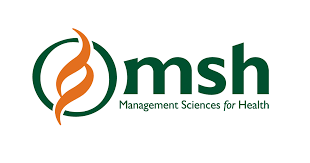By Abujah Racheal
Management Sciences for Health (MSH), an NGO, has started a grassroots sensitisation campaign in a move to tackle the growing threat of antimicrobial resistance (AMR) in the country.
The campaign is in collaboration with the Federal Ministry of Agriculture and Food Security.
MSH’s Animal Health Advisor, Dr Ibrahim Dauda, who made this known in an interview with the News Agency of Nigeria (NAN) on Thursday in Abuja, said the campaign started in January.
Dauda said that the initiative, also conducted in collaboration with the Fleming Fund Country Grant II and other partners, was being carried out across Akwa Ibom, Anambra, Kano, and Kwara States.
He said that the campaign brought together 200 poultry and fish value chain operators, who were trained on the responsible use of antimicrobials, biosecurity practices, vaccination strategies, and surveillance reporting.
According to him, the participants are empowered to become AMR ambassadors, committed to cascading the knowledge gained to their communities.
He said that MSH ensured that the campaigns were interactive, aided experience sharing and data collection to help identify knowledge gaps, particularly regarding antimicrobial misuse.
Dauda said that the campaign revealed that many participants were unaware of the long-term risks associated with indiscriminate antibiotic use.
“The misuse of antibiotics in agriculture remains a silent driver of AMR in Nigeria.
“Many farmers administer antibiotics without veterinary guidance, putting animal and human health at risk.
“To reinforce the message, specially developed jingles in local languages are set to hit radio waves and social media platforms.
“WhatsApp groups and community engagement efforts will ensure sustained dialogue among stakeholders,” he said.
The advisor said that as Nigeria braced to host the 2026 Global AMR Conference, the localised initiative underscored the country’s readiness to lead by example in curbing a global health crisis.
“We now understand that AMR is not just a science problem, it is a behavioural and communication problem too,” he said.
He said that the campaign marked a significant step in Nigeria’s AMR containment strategy, emphasising education, policy advocacy and sustained public engagement.
According to him, the country hosting the high-level meetings marks a historic milestone, reflecting its rising leadership in the global fight against AMR.
“AMR remains one of the most pressing global health and development threats, contributing to over 1.3 million deaths annually; weakening health systems, and threatening food security worldwide,” Dauda said.
The News Agency of Nigeria (NAN) reports that AMR occurs when bacteria, viruses, fungi and parasites no longer respond to the medicines used to treat them.
This makes infections harder and sometimes impossible to cure.
AMR leads to prolonged illness, higher medical costs and increased death rates.
In Nigeria, it caused over 263,000 deaths in 2019, surpassing those from malaria and tuberculosis.
Key causes include overuse and misuse of antibiotics in humans and animals, poor infection control, weak enforcement of regulations, and public misuse of drugs.
Tackling AMR requires a One Health approach, engaging the human health, veterinary, agriculture, and environmental sectors, especially the private sector, which delivers over 60 per cent of health services in Nigeria. (NAN)(www.nannews.ng)
Edited by Esenvosa Izah/Kadiri Abdulrahman












